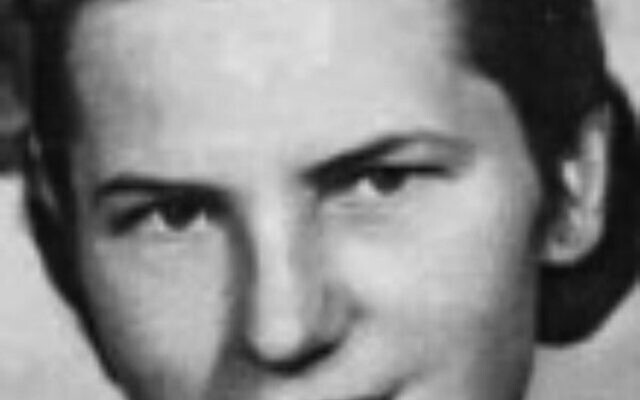Polish heroine hid Jews in Lithuania
“Today, remembering the great tragedy of Lithuanian Jews, we not only mourn the victims, but also turn to those who, through their actions, testify to the victory of light over darkness.”
Some 220,000 Jews, 96 per cent of Lithuanian Jewry, perished in the Holocaust, many at the hands of their non-Jewish neighbours. But some in Lithuania risked their lives to save Jews.
An Australian Polish communal figure, the son of a Polish Christian woman who rescued three Jewish children in Lithuania, has attended a ceremony at which his late mother was one of 38 people recognised by the Lithuanian government as rescuers of Jews.
Wojciech Zagala of Melbourne, director of the Polcul Foundation, an Australian organisation supporting civil society in Poland, visited Vilnius with his Australian family for the ceremony at which his mother Janina Zagala was posthumously honoured with the Zuvanciuju Gelbejimo Kryzius (Life Saving Cross) by Lithuanian President Gitanas Nauseda.

Born in 1913, Janina Zagala received a Catholic education in Vilnius and became an art historian. In September 1941, she went to the Butrymaniec ghetto near Kaunas and rescued the three children and adult members of their families shortly before the ghetto was liquidated by the Nazis.
Four-year-old Renana and 10-month-old Benjamin were the children of a Dr Gabai, and three-year-old Wilinke Fink (later Jozef Wilhelm Zienowicz), was the son of pharmacist Jakub Fink.
Initially Zagala planned to take the children to Vilnius and find a safe house for them but nobody would take them. Finally, she sheltered them at the home of her sister Helena, a nun. The adults were also found shelter.
Zagala later hid a Jewish friend, Chaja Trajewicka, who had contracted typhus and needed medical attention. Their lives were in peril when a neighbour found Jewish documents in an attic, but Zagala avoided detection throughout the war.
In 1943, she joined the Polish underground. The three children and their fathers were all saved. Fearing the Soviet NKVD, Zagala fled Lithuania for Warsaw in 1945. She was recognised as a Righteous Among the Nations by Yad Vashem in 1994. She died in 2001.
At this year’s ceremony, held shortly after September 23, national memorial day for the genocide of Lithuanian Jewry, Nauseda stated, “Today, remembering the great tragedy of Lithuanian Jews, we not only mourn the victims, but also turn to those who, through their actions, testify to the victory of light over darkness.”

The courage of some individuals in Lithuania during the Holocaust stood in contrast to many others. US Jewish activist Grant Gochin, who lost family in Lithuania during the Holocaust, visited Australia this year to describe his longstanding campaign against public monuments for Lithuanian nationalists whose wartime anti-Jewish atrocities have been ignored by officialdom.
Australian Jewish schools this year began taking part in J’Accuse!, an education project on Lithuania’s role in the Shoah.


comments